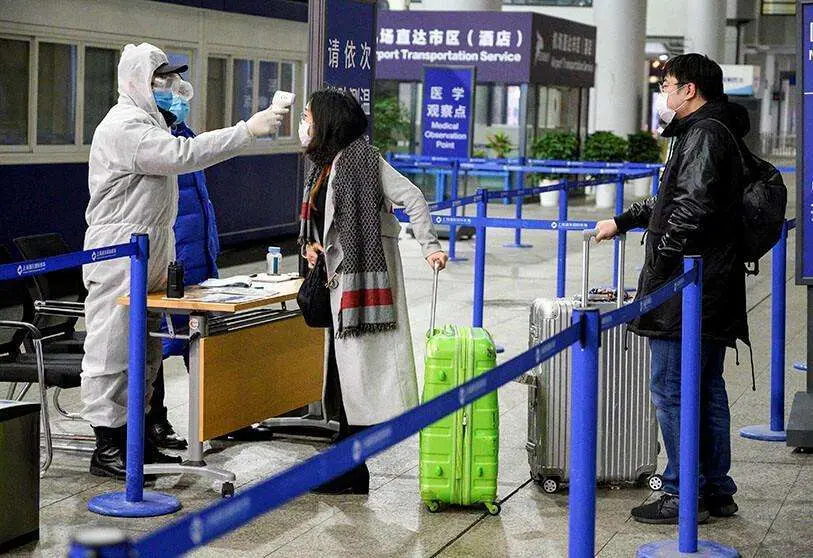WHO expert team arrives in Wuhan to investigate origin of SARS-CoV-2

The World Health Organization (WHO) team of experts, made up of scientists from various organizations from Russia, Japan, the United States and other countries, landed in the central-eastern Chinese city on Thursday to begin research into the origins of the coronavirus, SARS-CoV-2.
Images of the team's arrival in the city have been shown on the state channel CGTN. They have been received by the staff with protective equipment. They must follow the country's protocol for prevention against COVID-9, which involves 14 days of quarantine.
The initial objective for the WHO team is to find the possible animal origin of SARS-CoV-2 and how it is transmitted to the human body. Initially it was thought to be spread through a fresh produce and animal market in Wuhan, but the official Chinese press claims that the outbreak could be due to frozen food from other countries.
WHO Director-General Tedros Adhanom Ghebreyesus said he was disappointed by the obstacles Beijing was putting in the way. However, the Chinese authorities denied that they were putting up any obstacles, thus causing a controversy.
Beijing had been continually praised for its collaboration on the pandemic over the past year by the director. This had been criticised in the West, particularly by US President Donald Trump, who had constantly accused China of being responsible for the global spread of COVID-19.
The research team will also examine new variants of the coronavirus that are of concern to the world's authorities. The research team will also examine new variants of the coronavirus that are of concern to the world's authorities. In particular, the British and South African variants are the most contagious and are also abundant.
A third mutation originating in the Brazilian Amazon whose discovery has taken place in Japan is being analysed and could impact the immune response, according to the WHO, which mentions "a variant of concern".
Likewise, the re-emergence of the virus is affecting China, which had the epidemic under greater control. On Thursday it recorded its first death from COVID-19 since May. It was recorded in Hebei province, where several cities have recently been placed under containment following outbreaks of contamination. Chinese health authorities have reported 138 new cases, the highest daily number since March.
The United Kingdom intends therefore, as a consequence of the new variant, to implement a 24-hour vaccination "as soon as possible". The aim is to vaccinate by mid-February those over 70 years of age and carers, i.e. some 15 million people, out of the 2.4 million vaccinated today as of 8 December.
For its part, the African Union has obtained 270 million anti-COVID vaccines for the continent, which most countries do not have the means to finance the immunisation of their populations, announced South Africa, which holds the rotating presidency of the AU.







